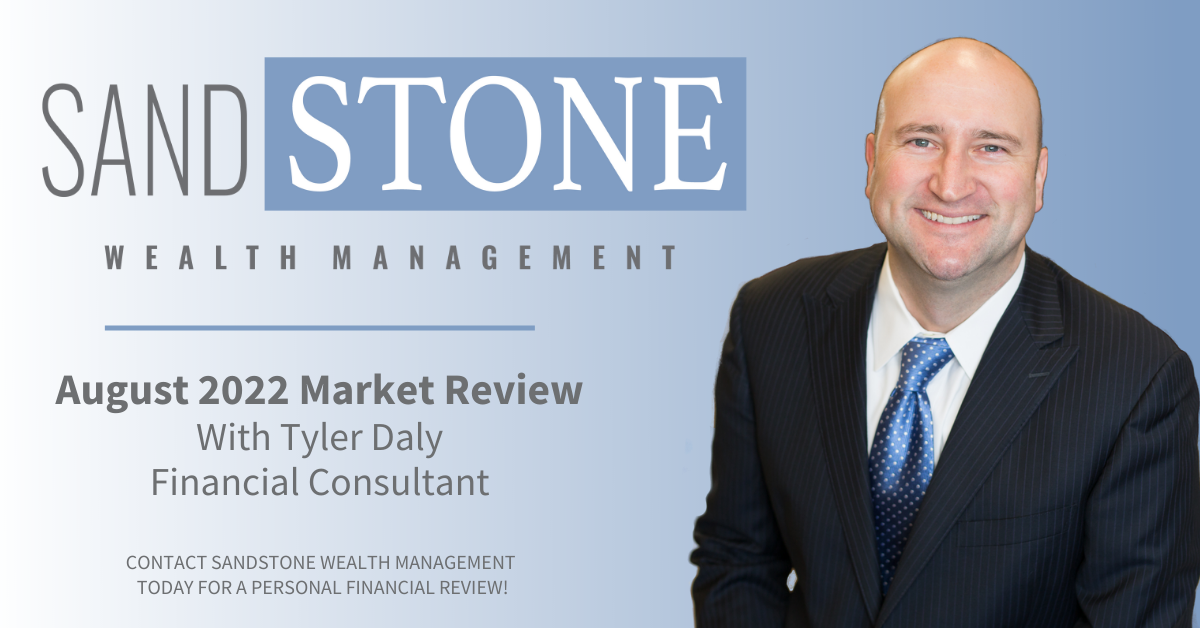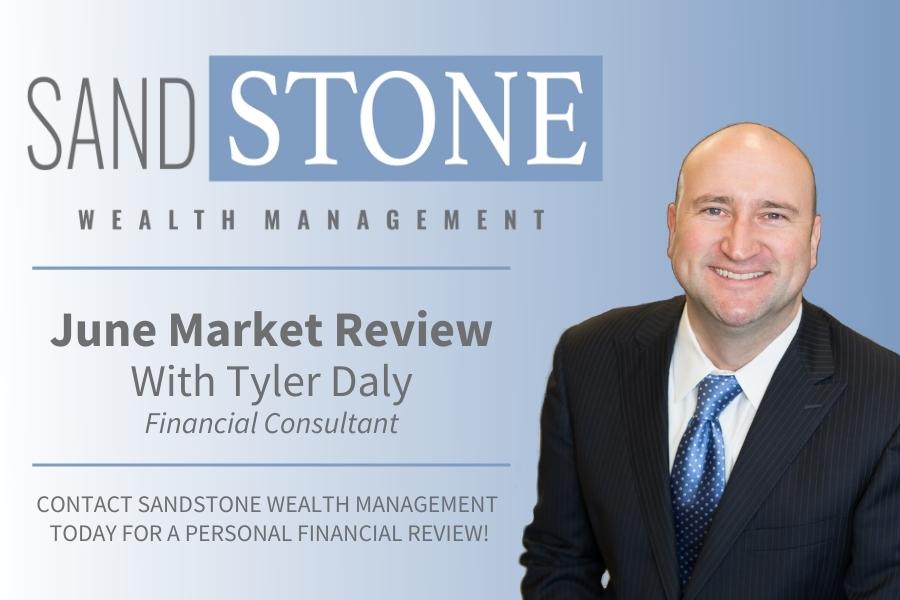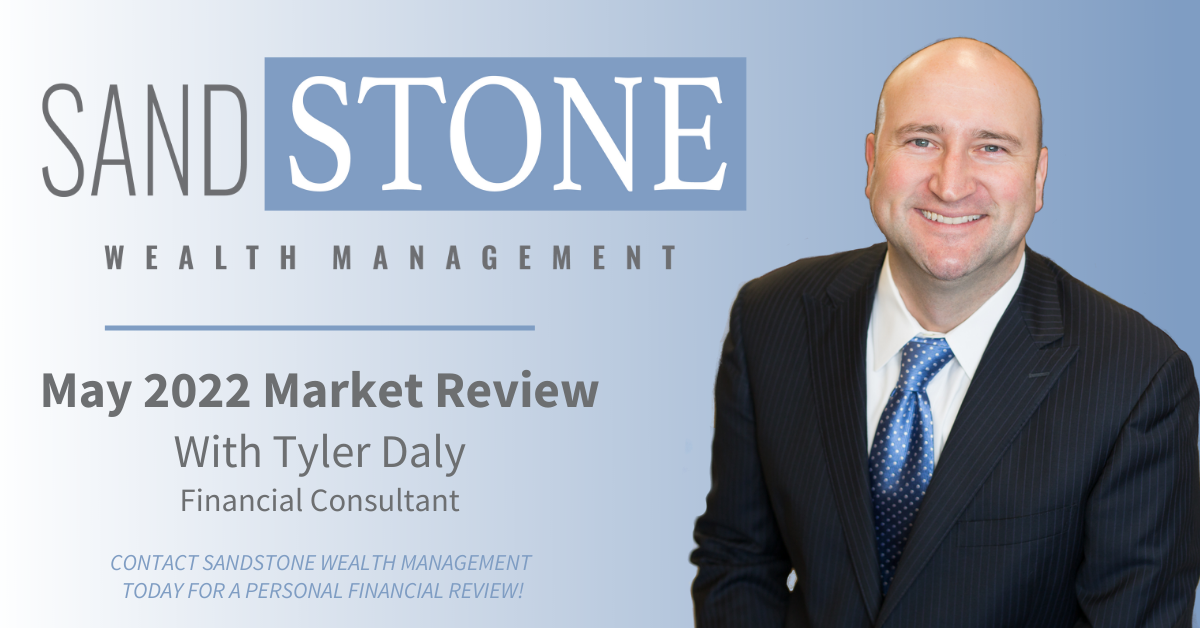
First-quarter gross domestic product (GDP) grew at its slowest pace in three years, reflecting sluggish consumer spending and soft auto sales. GDP rose at a 0.7% annualized rate, after a 2.1% rate the previous quarter. However, Raymond James Chief Economist Scott Brown reminds us that it is “common to see a strong quarter of consumer spending followed by a soft quarter – the underlying trend appears to be moderate – so the subpar 1Q17 spending figures are not too troublesome.”
All three major U.S. stock indices finished April in positive territory. The S&P 500 was up almost 1%, while the Dow Jones Industrial Average gained 1.34% for April, and closed just below its all-time high. The NASDAQ had the biggest gain, up 2.3%, while the Russell 2000 climbed just over 1% for the month.
| 3/31/17 Close | 4/28/17 Close | Change | Gain/Loss | |
|---|---|---|---|---|
| DJIA | 20,663.22 | 20,940.51 | +277.29 | +1.34% |
| NADSAQ | 5,911.74 | 6,047.61 | +135.87 | +2.30% |
| S&P 500 | 2,362.72 | 2,384.20 | +21.48 | +0.91% |
| MSCI EAFE | 1,792.98 | 1,833.70 | +40.72 | +2.27% |
| Russell 2000 | 1,385.92 | 1,400.43 | +14.51 | +1.05% |
| Bloomberg Barclays Aggregate Bond |
1,992.51 | 2,007.89 | +15.38 | +0.77% |
Equities performance reflects price returns as of 4:30 EDT (Barclays is as of 12 a.m.) on April 28, 2017.
In the broader picture, investors are paying attention to geopolitical concerns in Syria, North Korea and Afghanistan; as well as economic uncertainty in Europe, Asia and the emerging markets. Investors are also wary about the looming legislative battle over proposed tax cuts. In addition, international and domestic agreements, such as NAFTA and the Paris Climate Agreement, import taxes (such as aluminum import duty) and other issues are far from settled, explains Raymond James Senior Fixed Income Strategist Doug Drabik.
Here’s a look at what else is going on in the economy and capital markets, as well as key factors we are keeping an eye on.
Economy
- Weak consumer spending growth in the first quarter is likely due to temporary factors, explains Brown. GDP growth has averaged 1% in the first quarter since 2000. Looking ahead, overall economic growth may be restrained by a tight job market.
- Inflation expectations are now at their lowest levels since the election.
- Expectations for further Federal Reserve target fund rate hikes are increasing. Bloomberg data show little chance of a hike in May, but forecasters are solidly convinced of another 25 basis point hike coming in June, according to Fixed Income Strategist Ben Streed.
Equities
- U.S. equity markets enjoyed a strong first quarter, and we have also seen strong earnings growth in Europe and some Asian markets despite some geopolitical uncertainty, according to Nicholas Lacy, Chief Portfolio Strategist of Raymond James Asset Management Services.
- Earnings forecasts are being revised higher for Europe, while domestic earnings forecasts are being revised lower. That provides support for investors owning non-U.S. equities, he said.
- Lacy believes that earnings will drive equity markets over time. As long as we have improved earnings, we should see equity markets improve, Lacy notes.
International
- European politics took center stage in April with the first round of the French presidential vote. Centrist Emmanuel Macron appears to be leading the run-off race against populist Marine Le Pen. The run-off is slated for May 7.
- The euro and European equities have enjoyed a surge on the news that the election is likely to swing away from anti-euro and populist sentiments, notes Chris Bailey, European strategist, Raymond James Euro Equities*.
- Brexit negotiations also began in earnest, although much work remains.
- European assets including the euro currency remain – despite recent positive moves and inflows from the global investment community – lowly valued versus their American equivalents, Bailey notes. Further recovery in 2017 seems reasonable, but deep challenges remain for 2018 and beyond.
- North Korean missile tests put many on heightened alert, although Asian markets remained relatively calm. Many investors believe that proposed Chinese economic sanctions combined with an American military presence may be enough to steer North Korea away from more provocative action.
*An affiliate of Raymond James & Associates and Raymond James Financial Services
Fixed Income
- The April announcement, void of detail, did little to stem the uncertainties surrounding the proposed federal tax code. We should get more details in June.
- The industry as a whole remains confident that the benefits tied to maintaining the tax-exempt status of municipal bonds will outweigh the minimal money raised from eliminating the tax exemption, Drabik notes.
- Bond markets continue to send a different message than equities. Bonds are pricing in moderate growth and inflation, while equities display much more optimism/bullishness, explains Ben Streed, Raymond James Fixed Income Strategist.
- Demand for fixed income products is strong year to date, notes Streed, and investment grade corporate bond issuance continues at a record-setting pace for the year.
Bottom Line
- Moderate economic growth may appear disappointing, but we believe it’s still a constructive environment for investors.
Please let me know if you have any questions about recent market events or how to position your long-term financial plan for the months ahead. I look forward to speaking with you.
Sincerely,
Tyler Daly
Financial Advisor
Raymond James Financial Services, Inc.
*Investing involves risk, and investors may incur a profit or a loss. Past performance is not an indication of future results and there is no assurance that any of the forecasts mentioned will occur. Investors cannot invest directly in an index. The Dow Jones Industrial Average is an unmanaged index of 30 widely held stocks. The NASDAQ Composite Index is an unmanaged index of all common stocks listed on the NASDAQ National Stock Market. The S&P 500 is an unmanaged index of 500 widely held stocks. The MSCI EAFE (Europe, Australia, Far East) index is an unmanaged index that is generally considered representative of the international stock market. International investing involves additional risks such as currency fluctuations, differing financial accounting standards, and possible political and economic instability. These risks are greater in emerging markets. The performance noted does not include fees or charges, which would reduce an investor's returns.
©2016 Raymond James Financial Services, Inc., member FINRA/SIPC. Securities offered through Raymond James Financial Services, Inc., member FINRA/SIPC, and are not insured by any financial institution insurance, the FDIC/NCUA or any other government agency, are not deposits or obligations of the financial institution, are not guaranteed by the financial institution, and are subject to risks, including the possible loss of principal. Raymond James is not affiliated with the financial institution or the investment center.

Tyler has been in the financial services industry since 2004 and with Sandstone Wealth Management and Heartland Bank since 2009. He is Series 7, 66 and Insurance licensed to assist his clients with all their investing, financial planning, and insurance needs. Tyler was recently named to the Forbes List of America's Top Next-Generation Wealth Advisor, which recognizes advisors from national, regional, and independent firms. Tyler graduated from the University of Nebraska-Lincoln with a Bachelor’s Degree in Diversified Agriculture and was born and raised in the Nebraska Sandhills. This gives him an intimate knowledge and understanding of his farming and ranching clients. Tyler is married to Rachel, who earned her Doctorate of Pharmacy from the University of Nebraska. They have two children, Camilla and Cooper. Away from business, he enjoys officiating high school basketball in the winter as well as golfing and team roping in the summer.


.png)

.jpg)

.jpg)

.png)




